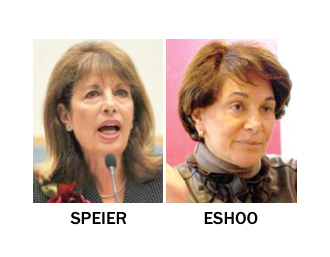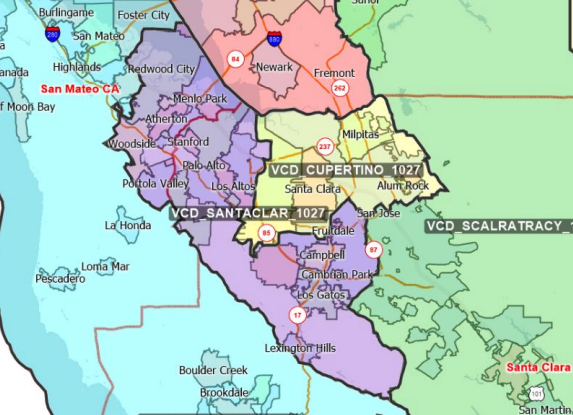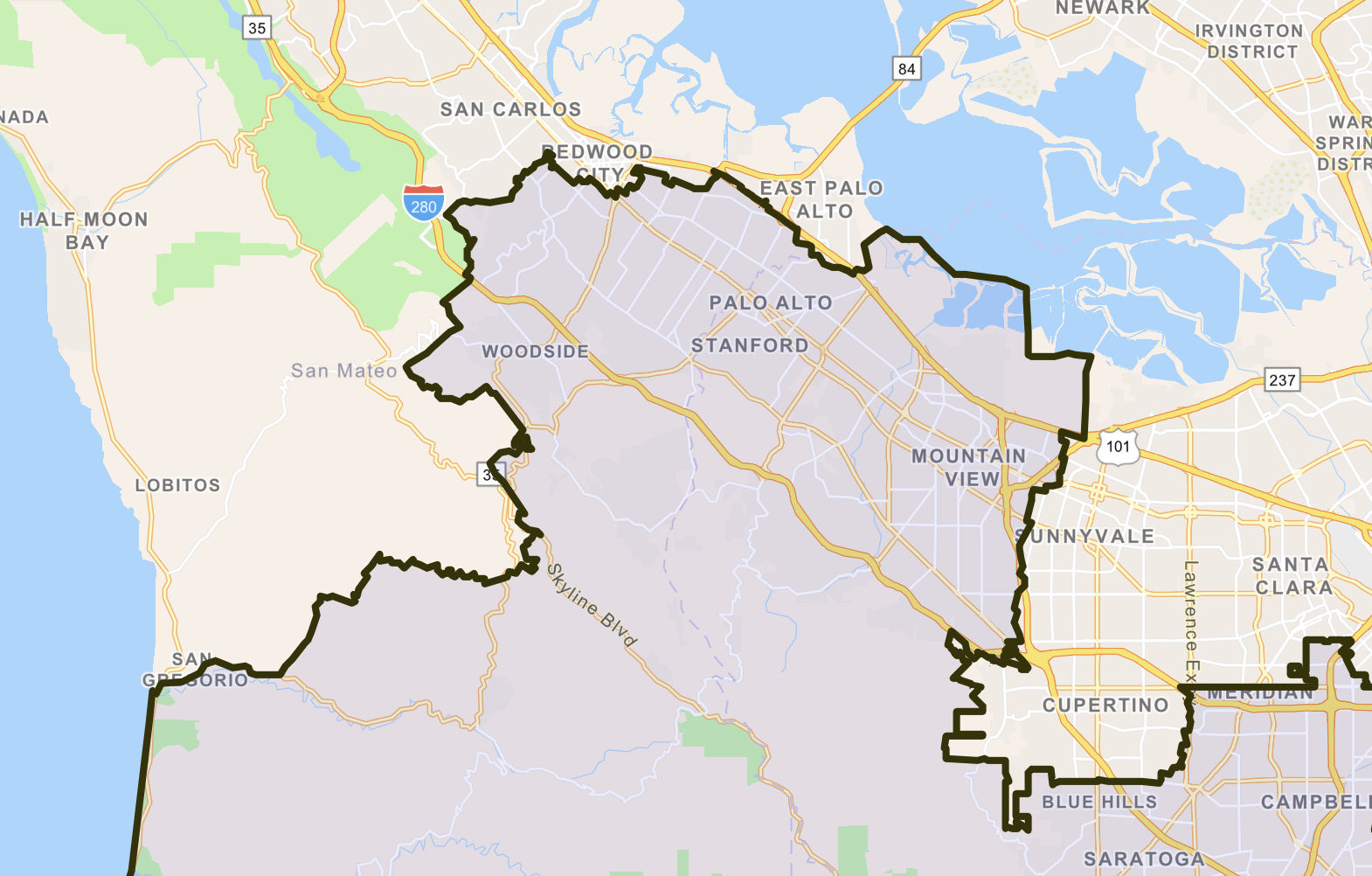
BY BRADEN CARTWRIGHT
Daily Post Staff Writer
Residents in East Palo Alto and Redwood City would be represented by longtime Rep. Anna Eshoo instead of Rep. Jackie Speier under a proposed map put forward by the California Redistricting Committee.
Speier, D-San Mateo, currently represents both of those cities.
The map is a first stab at attempting to redraw the lines for the state’s congressional districts, an exercise that occurs every 10 years following the Census.
The proposed map, released on Wednesday (Oct. 27), could change several times before a Dec. 23 deadline for approval.
Larry Gerston, a political science professor emeritus at San Jose State University, said the 14-member redistricting commission is “known to be extraordinarily non-partisan” and will make changes based on public feedback.
The commission tries to balance populations between districts, avoid splitting communities and keep existing boundaries as much as possible, Gerston said.
Under this first map, Eshoo’s District 18 would lose a few coastal towns to Speier, whose reshaped District 14 would stretch along the coast from Daly City to Santa Cruz.
The first draft for Eshoo’s District 18 has 31,301 more people than the average district, so it will likely shrink in terms of population.
“There’s so much ground to be covered between now and then, I would be reluctant to put too much emphasis on this being the final look,” Gerston said.”(The commission) will no doubt get lots of public comment.”
Eshoo, 78, has served in Congress since 1993. She announced in April that she is seeking her 15th term in 2022.
Speier, 71, has served in Congress since 2008.



Haters gonna hate.
I’d prefer to see younger representatives. Somebody who doesn’t robotically follow the party line but does her own thinking.
Eshoo and Speier represent the interests and agenda of the party machine in a one-party state. Moving the lines around ensures continuity of monopoly power not necessarily any benefit for the constituents. Voters may or may not appreciate that they don’t matter very much in machine politics – the candidates are pre-selected, the incumbents are all queued up for their promotion, the outcomes pretty much determined before the vote, and California rolls along. Eshoo – not known for achieving very much – can always skate by because the voter does what they always do – keep electing the same old group with the same old promises. In a state that thinks of itself as full of ideas the reality is that it’s all mostly the same ideas (which aren’t working that well) – groupthink. Why should we care if the lines move around?